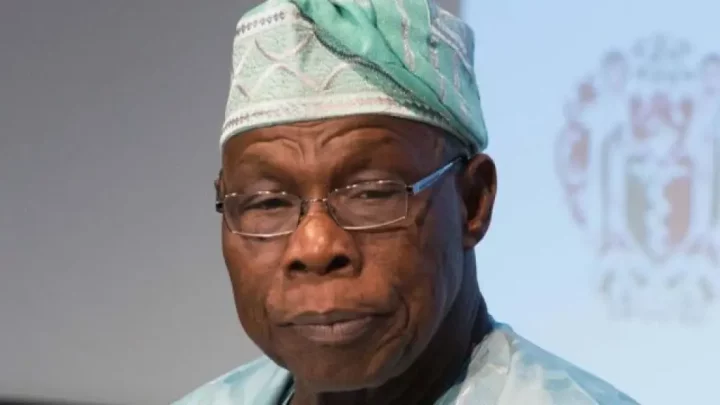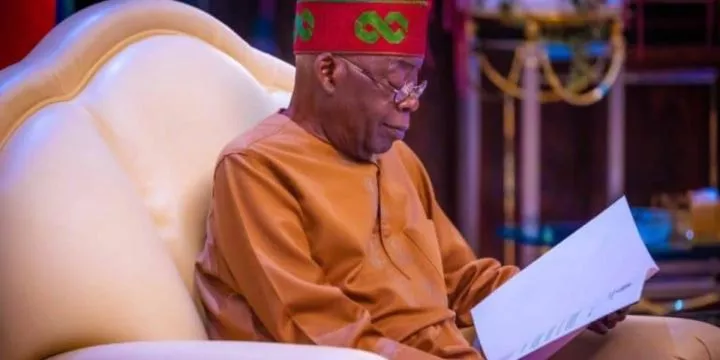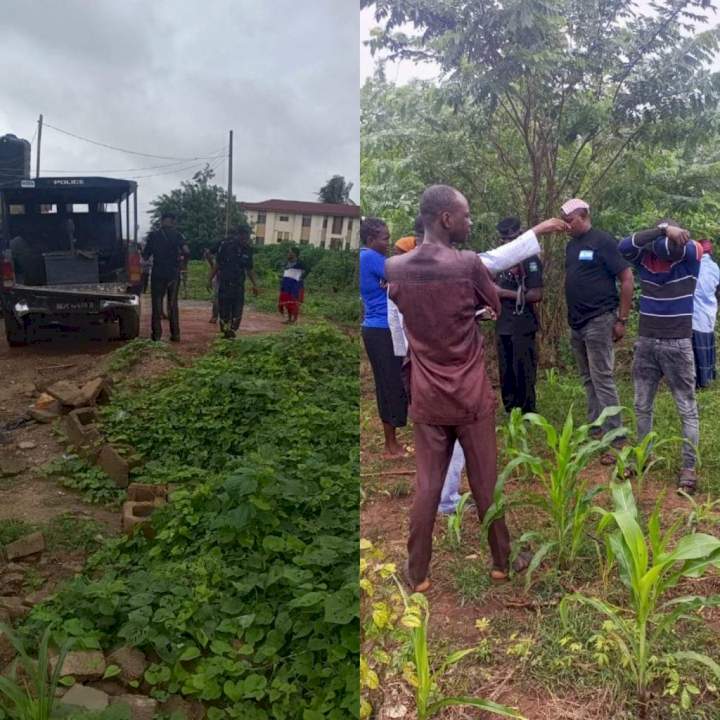
President Bola Ahmed Tinubu has declared a national emergency on food security, calling for urgent expansion of irrigation infrastructure and enhanced water resource management across the nation.
The announcement came on Monday, April 15, 2025, during the opening of the 6th African Regional Conference on Irrigation and Drainage in Abuja, which was attended by key stakeholders from various African nations.
Tinubu, who was represented by the Secretary to the Government of the Federation, George Akume, emphasized the importance of addressing the continent's irrigation and water management issues to secure sustainable agriculture and economic resilience.
He called on African nations to adopt innovative strategies to overcome the myriad challenges facing irrigation development in the region.
"The truth is, Africa continues to face major challenges in unlocking its irrigation potential due to inadequate infrastructure, financial constraints, climate change, and governance issues," Tinubu stated.
"This conference offers a vital platform for us to collectively chart a path forward," he added.
The President drew attention to Nigeria's vast but underutilized irrigable land, with more than 3.1 million hectares of land available for irrigation along major river basins like the Niger and Benue.
Despite this, the country has not fully harnessed its irrigation potential, which has exacerbated food insecurity and stifled agricultural productivity.
In his address, the Minister of Water Resources and Sanitation, Prof. Joseph Utsev, outlined significant strides made in Nigeria's irrigation sector under the 'Transforming Irrigation Management in Nigeria (TRIMING)' project.
According to Utsev, the project has led to the completion of major irrigation schemes such as the Dadin-Kowa and Bakolori schemes, and 90 percent of the Middle Rima Valley irrigation project has been completed.
However, Utsev pointed out that while the 'TRIMING' project had laid a strong foundation, more work remained to be done.
He revealed that the government's successor initiative, the 'Sustainable Power and Irrigation for Nigeria (SPIN)' project, will address outstanding gaps in the irrigation system and optimize water resources to support food security. This project will be executed in partnership with the World Bank.
"Through the TRIMING project, we've seen notable achievements, but there are still gaps that must be addressed. The SPIN project will build on those successes and continue expanding our irrigation potential," Utsev explained.
The minister also highlighted the establishment of over 153,000 hectares of irrigable land through the River Basin Development Authorities, noting that these areas are being partially commercialized to attract private sector investment.
Additionally, the 'TRIMING' project has contributed to the formation of Water Users Associations, farmer management centres, and enhanced market linkages for key agricultural value chains like rice and tomatoes.
Governor Babagana Zulum of Borno State also spoke at the event, stressing the detrimental impact of climate change on farming seasons.
Zulum warned that the increasing unpredictability of rainfall patterns was causing uncertainty among farmers, further complicating the country's agricultural productivity.
"Our fertile lands are turning to dust. Irrigation is now a necessity, not a luxury," Zulum stated.
Zulum also called for greater empowerment of women and youth, who are at the forefront of Nigeria's agricultural industry, and for a more responsive approach from development partners to address water access and rural farming challenges.
"Innovation must not be seen as a privilege of the few; we must empower women and youth who are at the frontline of agriculture," he urged.
In addition, the Head of the Civil Service of the Federation, Dr. Didi Wilson-Jack, called for renewed commitment from all levels of government to ensure national food security, underscoring the need for coordinated action to address the nation's growing agricultural challenges.
Mr. Godknows Igali, former Permanent Secretary of the Ministry of Water Resources, highlighted the urgent need for strategic planning and professional staffing in water governance, particularly in managing Nigeria's river basins.
He stressed the importance of sub-national governments playing a more active role in the management of water resources and food systems to ensure long-term sustainability.
Dr. Marco Arcieri, President of the International Commission on Irrigation and Drainage, praised the conference as both timely and essential, calling it a "turning point" for addressing Africa's pressing water and irrigation challenges.
"We've celebrated big ideas and set tangible goals to confront the pressing challenges. We remain committed to supporting Africa as it faces population growth and climate stress," Arcieri stated.
The conference also featured a Young Professionals' Forum, gathering emerging leaders in irrigation and water management from across Africa. Dr. Arcieri emphasized the crucial role of these young professionals in driving sustainable solutions to the continent's water and irrigation issues.
The African Regional Working Group, led by Mr. Ibrahim Musa, expressed optimism that the conference would lead to innovative solutions and actionable outcomes in addressing Africa's irrigation development needs.
The conference, which continues until April 17, 2025, will feature technical sessions, policy dialogues, and field visits to key irrigation sites across Nigeria.

















Comments